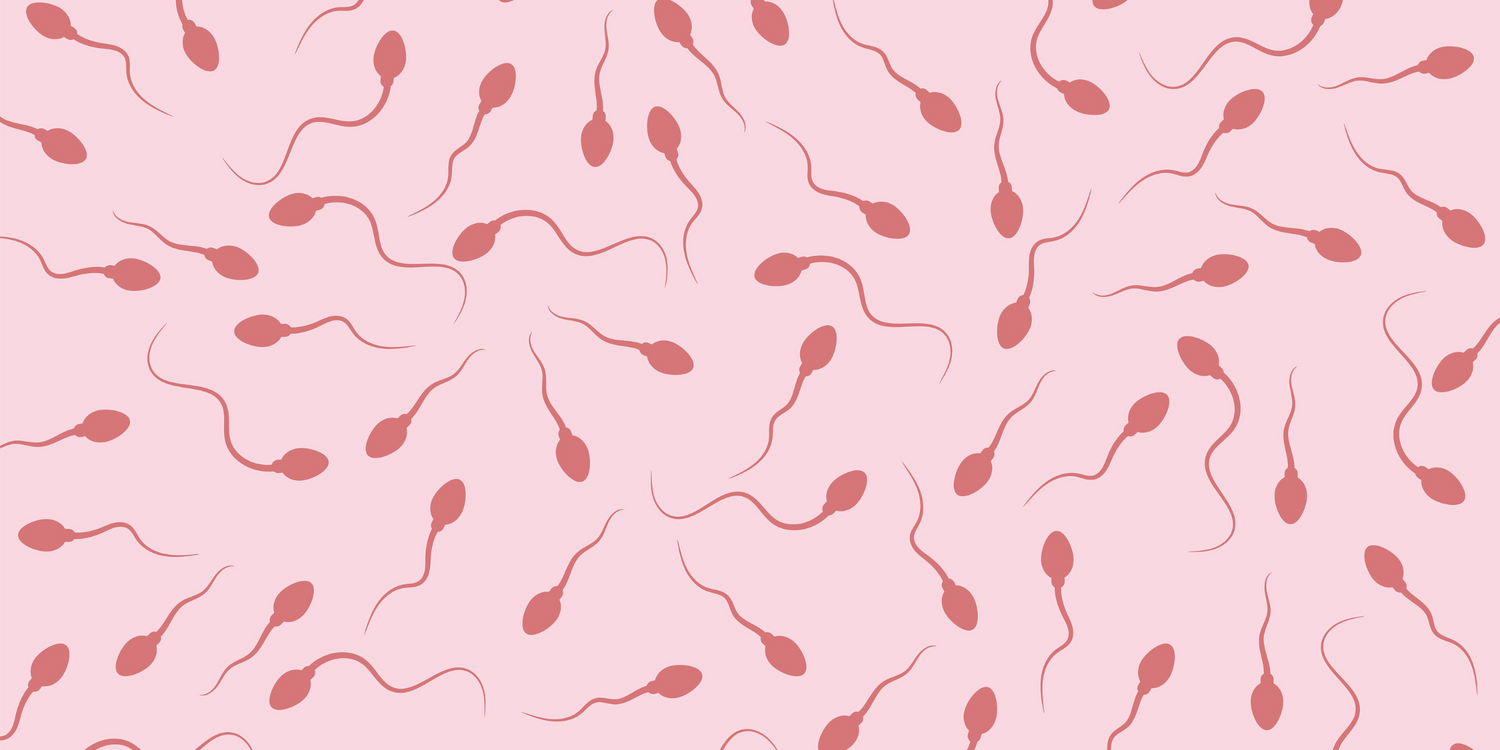Key Takeaways
- Would you like to improve your sperm quality? In this article, you will learn how a targeted diet, regular physical activity and a healthy lifestyle can optimize your fertility.
- Discover the most important nutrients, sports activities and lifestyle tips that have a positive effect on sperm production.
- And find out how you can take simple measures to increase your chances of successful family planning.
Are you looking to improve your sperm quality? The health of your sperm plays a crucial role in your fertility and family planning. Factors such as diet, lifestyle, and physical activity are key in stimulating sperm production and optimizing quality. By taking the right steps, you can actively enhance your chances of successful family planning.
In this article, you'll discover how targeted nutrition and exercise can boost your sperm quality. We explore the essential nutrients that make a difference and the types of physical activities that have a positive impact. Additionally, we discuss how stress, alcohol, and other lifestyle factors influence sperm production, giving you the knowledge to make informed decisions to support your fertility.
Analysis of Sperm Quality
Semen Analysis
A semen analysis is an important test to evaluate your fertility. This test examines various properties of your semen, providing insights into the number, shape, and motility of your sperm.
To obtain accurate results, you should abstain from ejaculation for two to five days before providing the sample. The semen sample is collected through masturbation and then analyzed in a lab.
Key Parameters
The analysis considers the following important parameters:
- Sperm concentration: ≥16 million per milliliter
- Ejaculate volume: ≥1.4 ml
- Total sperm count: ≥39 million per ejaculate
- Motility: ≥30% forward-moving sperm
- Morphology: ≥4% normally shaped sperm
In addition, the pH level, consistency, and liquefaction time of the semen are also examined. These values are compared to the reference values set by the World Health Organization (WHO).
Frequency of Tests
To make a reliable assessment of your fertility, it is recommended to perform two separate semen analyses. The tests should be spaced six weeks to three months apart, as sperm quality can vary significantly.
An additional test, the CatSper Test, can provide further insights, especially in cases where the semen analysis appears normal. This test evaluates sperm function and can help identify causes of male infertility early on.
Nutrients for Optimal Sperm Production
A balanced diet is crucial for sperm quality. Certain nutrients can support sperm production and function. Here are some of the most important nutrients you should include in your diet:
Vitamin C and E
Vitamin C and E are powerful antioxidants that can protect sperm from oxidative stress. These vitamins can help improve sperm quality by neutralizing free radicals that can damage sperm cells.
Folic Acid
Folic acid, also known as vitamin B9, is essential for cell division and the formation of new cells. There is evidence that folic acid can positively impact sperm quality and count. Studies have shown that folic acid supplementation in men with fertility issues can lead to increased sperm concentration, motility, and morphology.
You can find folic acid in green leafy vegetables, cabbage, tomatoes, whole grains, oranges, and eggs. Wheat germ and soybeans are particularly rich in folic acid.
L-Carnitine
L-Carnitine is found in extremely high concentrations in the epididymis and is necessary for sperm to produce energy from fatty acids. It facilitates the transport of long-chain fatty acids into the mitochondria, where they are burned for energy. Studies have shown that L-Carnitine supplementation can significantly improve sperm motility.
Coenzyme Q10
Coenzyme Q10 (CoQ10) is a naturally occurring antioxidant that plays a vital role in cellular energy production in the mitochondria. It can improve sperm motility and reduce oxidative stress. Studies suggest that CoQ10 supplementation in infertile men can lead to increased sperm motility.
Physical Activities to Promote Fertility
Regular physical activity can positively influence your fertility. Studies show that exercise can improve sperm quality and production in men. For women, the right amount of exercise can regulate hormones and increase the chances of pregnancy.
Endurance Training
Endurance sports like jogging, walking, and swimming are particularly effective in boosting sperm production. For men, moderate continuous training (MICT) has proven especially beneficial. A recommended MICT program includes 30 to 55 minutes of treadmill training three to four days a week at 45-55% of maximum oxygen uptake (VO2max).
Studies have shown that MICT leads to significant improvements in sperm quality compared to a control group:
- 8.3% higher semen volume
- 12.4% higher sperm motility
- 17.1% better morphology
- 14.1% higher sperm concentration per milliliter
Strength Training
Contrary to some concerns, moderate strength training generally poses no risk to male fertility. It can even help regulate hormone levels and improve overall health. However, it is important not to overdo it, as excessive exercise and extreme weight loss can disrupt hormone production.
Yoga and Relaxation
Yoga has proven to be an effective method to support fertility. It can reduce stress, regulate hormone levels, and improve blood circulation in the pelvic area. Special yoga variations like Luna Yoga or Hormone Yoga can be particularly effective:
- Luna Yoga: A gentle form of yoga that promotes blood circulation in the pelvic region and relieves tension.
- Hormone Yoga: A more intense form that specifically influences hormone levels and can regulate the cycle.
The impact of exercise on fertility can vary from person to person. It is important to find a balanced exercise program that suits your personal needs and physical condition. If in doubt, consult a healthcare professional or nutritionist to develop an optimal program for your fertility.
Lifestyle Factors and Their Impact on Sperm Quality
Sleep Quality
A regular sleep rhythm is crucial for your fertility. Studies have shown that sleep problems in men can lead to poorer sperm morphology and reduced sperm count. Men who slept less than six or more than nine hours had a 42% lower chance of conceiving in a given month.
During sleep, your body produces a large amount of testosterone, which is essential for healthy sperm production. Fluctuations in the sleep cycle can negatively affect this level. A Danish study found that men with poor sleep quality had fewer sperm and fewer properly shaped sperm than others.
Stress Management
Stress can negatively impact your hormone production and, thus, the quality of your sperm. To reduce stress, you should incorporate techniques such as meditation, yoga, and relaxation exercises into your daily routine. A stress-free life can positively influence your fertility. Try to find time for yourself by working on time management, pursuing a hobby, or taking occasional breaks.
Body Weight
Maintaining a healthy weight increases your chances of conceiving. Both underweight and overweight can significantly affect your hormonal balance. In overweight men, testosterone levels are lower due to the dilution effect in the blood, which can affect fertility.
A study of 52,000 American men showed that for every nine kilograms over normal weight, fertility decreased by ten percent. Overweight men also suffer more frequently from erectile dysfunction and lose their libido.
Scrotal Temperature
The temperature in the scrotal area plays an important role in sperm quality. High temperatures can impair your sperm quality. A 2015 study found that an elevated scrotal temperature of 40-43°C reduced sperm concentration from 73M/ml to 42M/ml and sperm motility from 71% to 25%.
To regulate scrotal temperature, you should avoid the following:
- Tight underwear and pants - switch to looser ones
- Sitting for several hours at a time - stand up and let air circulate in the area
- Keeping laptops or other hot items near the genital area for extended periods
- Long warm baths, hot tubs, and saunas
- Storing your mobile phone in the front pocket near the genital area
Conclusion
A balanced diet, regular physical activity, and a healthy lifestyle can significantly contribute to promoting sperm production and improving quality. By incorporating essential nutrients like vitamins C, E, folic acid, and L-Carnitine, along with moderate physical exercise, men can actively increase their chances of successful family planning.
To achieve the best possible results, it is also crucial to pay attention to other aspects of your lifestyle. Adequate sleep, effective stress management, and maintaining a healthy body weight have a positive impact on sperm quality. Additionally, it is important to keep scrotal temperature within the optimal range by avoiding tight clothing and prolonged sitting. By considering all these factors, men can improve their fertility and support their family planning efforts.
Medically Reviewed
This text was created by medical editors on the basis of specialist medical literature and current studies. Our aim is to work scientifically, identify sources and regularly check that the content is up to date.
References & Literature
- Hajizadeh Maleki B, Tartibian B, Chehrazi M. The effects of three different exercise modalities on markers of male reproduction in healthy subjects: a randomized controlled trial. reproduction. 2017 Feb;153(2):157-174. doi: 10.1530/REP-16-0318. PMID: 27920258.
- MA Coppola1, KL Klotz2, K.-a. Kim3, etc. SpermCheck Fertility, an immunodiagnostic home test that detects normozoospermia and severe oligozoospermia.
- WHO laboratory manual for the examination and processing of human semen - 5th ed. World Health Organization.

